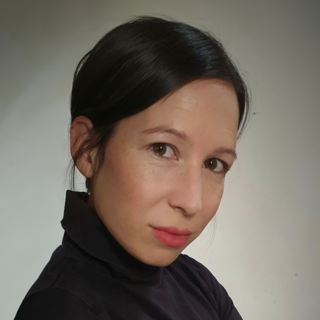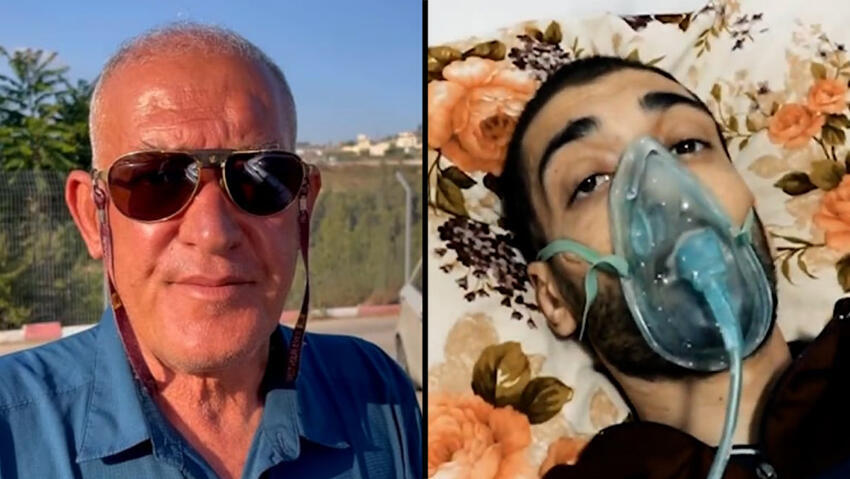Sha’aban al-Sayed is approaching his 65th birthday, but for nearly a decade, he has not seen his son, Hisham, who is being held captive in Gaza. "We haven’t prepared anything for his return," al-Sayed told Ynet on Sunday. "After 10 years, we’ve learned that nothing is certain until it happens."
The last time he saw Hisham was the day he disappeared. "We talked like usual—just small talk," al-Sayed recalled. "I went to work, and he stayed home. He had no set routine; he would wander and then come back."
The last sign of life from Hisham al-Sayed who is in Hamas captivity
Hisham, a Bedouin from southern Israel, was born on Feb. 15, 1988. His father hopes he will return in time for his upcoming birthday. He crossed into Gaza in 2015 and was captured by Hamas. Now, he is expected to be released in the first phase of a hostage deal.
"We just want to see him first—then we’ll think about what comes next," al-Sayed said. "We’re not getting our hopes up. I’ll start allowing myself to feel when I see him. Until then, I’ve locked those emotions away." His wife, he added, has taken a similar approach. "She’s struggling emotionally. She doesn’t know what to feel."
The last sign of life from Hisham came in 2022 when Hamas released footage of him in Gaza, connected to an oxygen tank. "Seeing that video didn’t give us hope—it just confirmed he was alive," al-Sayed said. "Hamas claimed he was very ill, but at least we got proof of life."
The Hostage and Missing Persons Families Forum has been in contact with the family, al-Sayed said, and they find some comfort in staying connected with other hostage families. "We don’t need the government—we’re just waiting for this deal to go through," he said. "The uncertainty is a nightmare."
Get the Ynetnews app on your smartphone: Google Play: https://bit.ly/4eJ37pE | Apple App Store: https://bit.ly/3ZL7iNv
Al-Sayed said he has watched previous hostage releases but remains cautious. "The worry has always been there. It doesn’t change anything for me because we still have no information about him," he said. "Before Oct. 7, the country was different. After the attack, anything is possible."
He described his son as strong but said his mental illness had complicated his situation.
Al-Sayed also praised Gal Hirsch, Israel’s coordinator for captives and missing persons. "He’s one of the best coordinators we’ve had. He tries to stay emotionally connected to the families, and I feel he’s doing his best," he said. "Whenever I ask him something, he answers honestly, without political spin."
According to al-Sayed, Hirsch told him Hamas had repeatedly sabotaged negotiations before the latest deal was finalized. "There was information about this deal six months ago," he said. "Hirsch was upfront about what was happening. He explained that Hamas had derailed talks multiple times before the final agreement."
Alongside Israeli media, al-Sayed follows both pro- and anti-Hamas Arabic news sources. "I cross-check information," he said. "Our government has been trying to make a deal all along. Hamas blocked it and then blamed the government. Their goal is to create chaos."
He noted that Hamas dictated the order of hostage releases—prioritizing women, the elderly, the sick, and the deceased. "I don’t care if Hisham is number two or number five," he said. "Avraham Mengistu is in the same category as my son—both are civilians with health conditions. There’s a difference between soldiers and sick civilians."
Since the Oct. 7 terror attack, al-Sayed has connected with many other hostage families who are now experiencing what his family has endured for a decade. "We met Ethiopian families and families of soldiers. We didn’t feel any difference between us," he said. "The sheer number of hostages was shocking. It took me two weeks to process what had happened."
When the Hostage and Missing Persons Families first reached out, he hesitated to join. "I didn’t know what to do," he admitted. "After so many disappointments, it took me time to connect. I can’t attend every event, but we try to stay in touch with all families—regardless of politics. The world has changed, and we’re focused on people, not political agendas."





